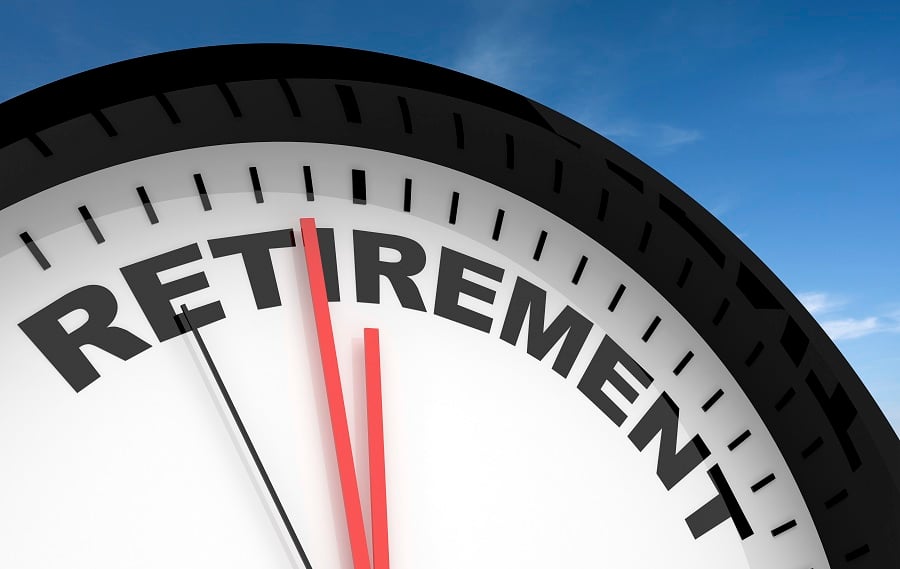

If delaying Social Security benefits for a few years results in a bigger check, then delaying a little longer should result in an even bigger one, right? Wrong! This is one of the false assumptions I encountered last week during my annual trip out west with a local ski club where the average member is on the verge of retirement, and some are long past it. Once my fellow skiers learned I was the "Social Security lady," many queued up with questions, and I resembled the chair-lift line to the top of the mountain. One man, who admitted his Social Security earnings record was a bit spotty as a result of many years working abroad where he did not pay FICA taxes, figured he would keep working well past age 70 and delay claiming Social Security until he retired. I told him that was a bad idea. For every year you postpone claiming Social Security retirement benefits beyond full retirement age — which in his case is 66 — you earn delayed retirement credits that boost your basic benefit by 8% per year. But those credits stop at 70, so there is no reason to defer claiming beyond that age. Social Security retirement benefits are based on the top 35 years of indexed earnings. If you work fewer than 35 years, those nonworking years are reflected as zeroes on your earnings history, reducing your average indexed monthly earnings, which are used to determine your Social Security benefits. A benefit formula is applied to your average indexed monthly earnings to determine your primary insurance amount, or PIA, that is payable at your full retirement age. Your benefit amount is reduced if you claim before your full retirement age and increased if you delay claiming up to age 70. My ski club buddy reasoned that the longer he worked, the better his chances of replacing some of those zero years with substantial earnings, thereby increasing his future Social Security benefit. I assured him that if he continued to work, regardless of his age, his future benefit would increase if the current earnings replaced a lower-earning-year or a zero year in the 35-year calculation. The Social Security Administration explains the process this way: "Each year we review the records for all Social Security recipients who work. If your latest year of earnings turns out to be one of your highest years, we refigure your benefit and pay you any increase due. This is an automatic process, and benefits are paid in December of the following year. For example, in December 2019, you should get an increase for your 2018 earnings if those earnings raised your benefit. The increase would be retroactive to January 2019." Another ski club member told me she also planned to delay claiming Social Security until age 70 to maximize her benefit. But after inquiring about her age and marital status, I told her she was leaving money on the table. Divorced after more than 10 years of marriage, currently single and born before 1954, she is among the dwindling group of retirees eligible to file a restricted claim for benefits as a spouse — or ex-spouse — while allowing her own retirement benefit to continue to grow by 8% per year up until age 70. But those spousal benefits max out when claimed at full retirement age. They are not eligible for delayed retirement credit. I told this ski club colleague that at age 67, she had already missed out on a year of spousal benefits. However, because she was older than full retirement age, she is eligible for a lump sum retroactive payment of up to six months of benefits. [Read more: Who is eligible for retroactive Social Security benefits?] At 70, she can then file for her own maximum retirement benefits. It's important for financial advisers to remind clients to file for Social Security benefit at age 70. In most cases, it is not automatic. That point was brought home by a frantic phone call from a financial adviser whose client claimed her spousal benefits at age 66 but forgot to switch to her own retirement benefits at 70. Advisers should record that critical trigger date in their client's files. SSA will not track them down at age 70 to remind them to switch to a bigger benefit. The onus is on the client. The same rules apply to survivors. The maximum survivor benefit is available when the widow or widower reaches full retirement age. Survivor benefits do not qualify for delayed retirement credits. But survivors can choose to switch to their own retirement benefits — if they are larger — as late as age 70.

Relationships are key to our business but advisors are often slow to engage in specific activities designed to foster them.

Whichever path you go down, act now while you're still in control.

Pro-bitcoin professionals, however, say the cryptocurrency has ushered in change.

“LPL has evolved significantly over the last decade and still wants to scale up,” says one industry executive.

Survey findings from the Nationwide Retirement Institute offers pearls of planning wisdom from 60- to 65-year-olds, as well as insights into concerns.
Streamline your outreach with Aidentified's AI-driven solutions
This season’s market volatility: Positioning for rate relief, income growth and the AI rebound
